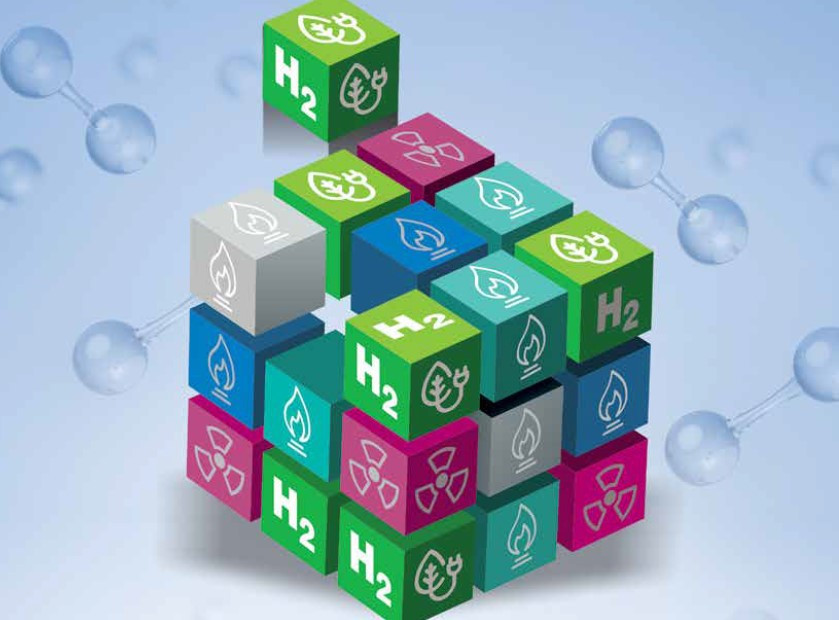A renowned proponent of hydrogen energy for several decades in the European and international policy circles, Jorgo Chatzimarkakis is heading the industry association 'Hydrogen Europe' to facilitate clean energy transition in the Europe since 2016. He considers hydrogen technologies as effective 'energy vector' to meet the climate goals of the region.
In his brief interaction with Ashok Thakur, Chatzimarkakis spoke on the emerging hydrogen ecosystems in global markets, especially in countries such as India, apart from the mainstay growth regions of Europe and the United States. He also commented on the relevance of the US's Inflation Reduction Act (IRA) on kick-starting hydrogen investments in that country, and touched on the critical challenge of demand aggregation plaguing the hydrogen industry at present.
Excerpts:
Ashok Thakur: You are talking about hydrogen development for several years now. Tell us where your efforts are leading to, and how hydrogen can address the bottlenecks to net-zero ambitions?
Jorgo Chatzimarkakis: I would like to refer to the COP28 UN Climate Change Conference held in Dubai recently, in which the global community vowed to triple nuclear power and double energy efficiency to fight climate change. This means, we will have more energy to be infused into the global power system, but the problem is, we do not have enough power grid to digest all the generated electricity. Hence, we need additional pathways to use this additional renewable energy capacity towards hydrogen.
Hydrogen can be used to store and transport energy in a much cheaper way than other energy forms. The world is increasingly realizing this, which is why hydrogen is not a question anymore. The only question right now is how fast can we formulate necessary legal frameworks and certifications in global markets, so that hydrogen as a commodity will become a reality as soon as possible.
Ashok Thakur: Hydrogen has come a long way. It has been an important technology for decades now. But in the last 5 years, companies are talking about it and governments supporting it, more than ever. What, according to you, are the leading regions of hydrogen development?
Jorgo Chatzimarkakis: When it comes to projects, European are leadings the race. But, on the FID front, they are lagging behind. It's a typical "European thing"… You have great ideas; you think about and discuss them, but less pragmatic enough to make things happen, unlike other markets.
India, on the other hand, has made remarkable progress in the last two years. I distinctly remember the time when energy experts from various Indian states, visiting us in Brussels about five years ago, confusing 'hydrogen' with 'hydro power' all the time during the discussions. Today, India has developed a big knowledge and experience in hydrogen, both in government and private sectors. It will be one of the core markets for hydrogen, both in terms of production and consumption. I'm absolutely sure that India's hydrogen ecosystem will emerge in a big way, if the governments make the right steps in the coming years.
Same outlook applies to Australia, Gulf region and select African countries like Morocco and Namibia, among others, with immense access to solar, wind, and port advantages. Governments are realizing the ideal positioning of their countries in the emerging hydrogen supply chains and are developing relevant strategies to leverage the advantages. With the emergence of new 'giants' in global hydrogen ecosystem, the global energy landscape is all set for a massive transformation.
India has made remarkable progress in the last two years. The country has developed big knowledge and experience in hydrogen development, both in government and private sectors. It will be one of the core markets for hydrogen in the coming years, both in terms of production and consumption
Jorgo Chatzimarkakis, CEO of Hydrogen Europe
Ashok Thakur: What is your take on the US market after the advent of the IRA? A lot of European and global companies are rushing investments into the country at present. How do you see that helping the global hydrogen landscape?
Jorgo Chatzimarkakis: The IRA has brought some pragmatism into the hydrogen game. So far, hydrogen discussion was mainly led by Europeans within certain ideologic point of views on renewables under certain conditionality and temporal correlation, thereby complicating the propositions. The Americans, on the other hand, brought a 'down-to-earth' spirit into the hydrogen ambitions. Whether or not the IRA will survive is difficult to say; we hear that the Americans too tend to follows the complex and awkward regulations on defining what constitutes as 'renewable hydrogen' unfortunately, as I believe such complexities are 'show-stopper' for hydrogen development.
Nevertheless, people from across the globe see the US as a potential market and producer of hydrogen that they can partner with. The country has attracted enormous attention towards hydrogen at the international level. We have to wait and watch how the elements of the IRA are panning out. Given that we are standing in an election year, not just in US but also in India and even in European parliament. So, I'm quite curious too!The US's IRA has brought some pragmatism into the hydrogen game. People from across the globe see the country as a potential market and producer of hydrogen. The country has attracted enormous attention towards hydrogen at the international level. We have to wait and watch how the elements of the IRA are panning out
Jorgo Chatzimarkakis, CEO of Hydrogen Europe










